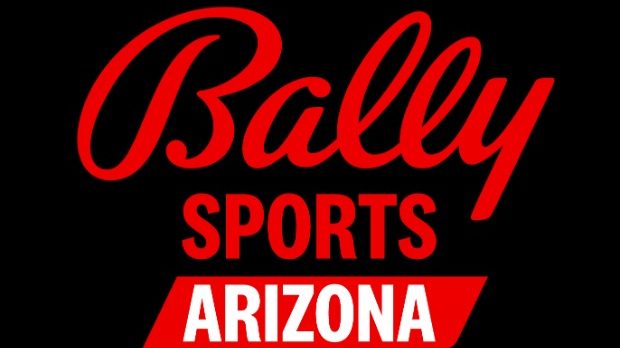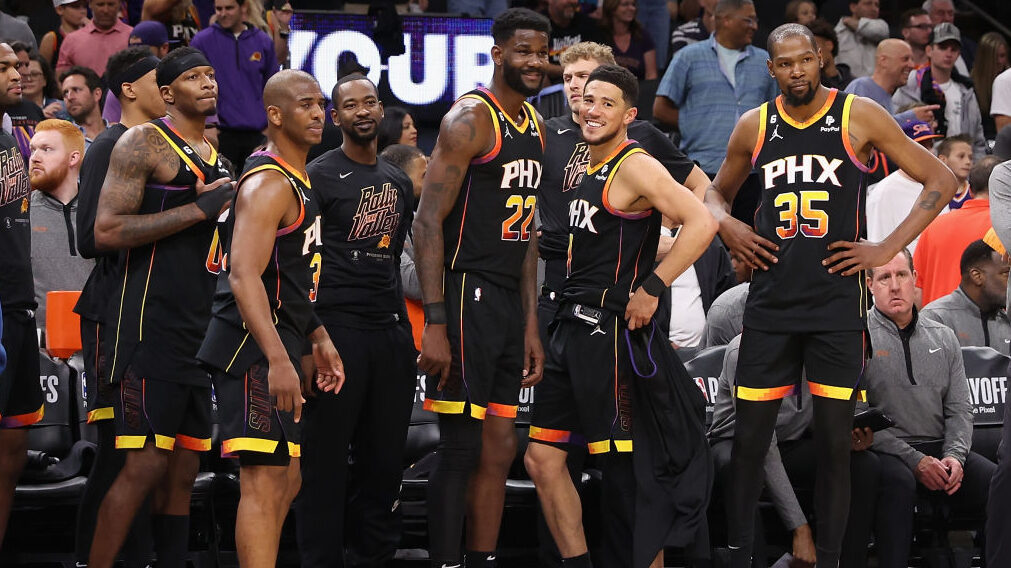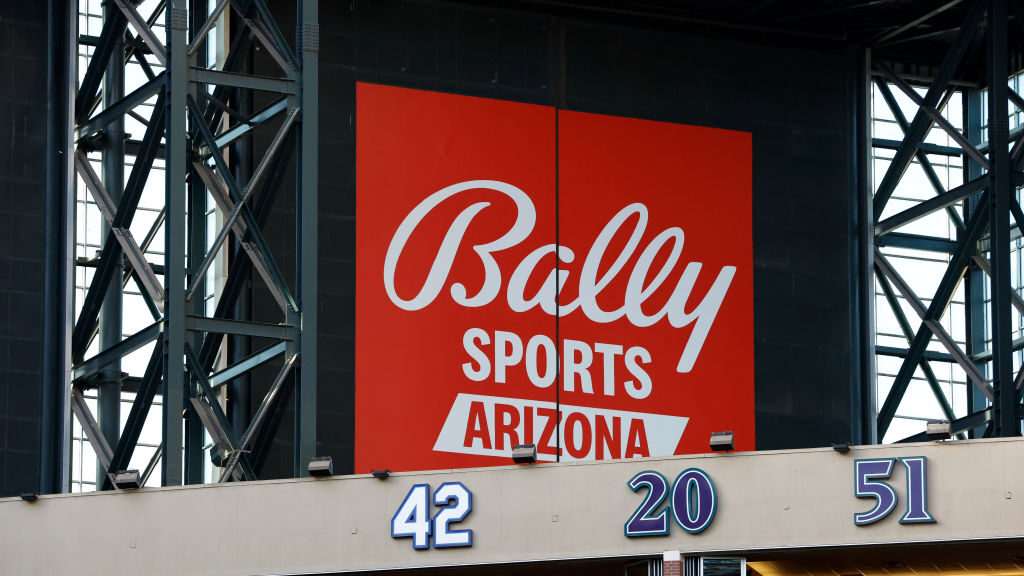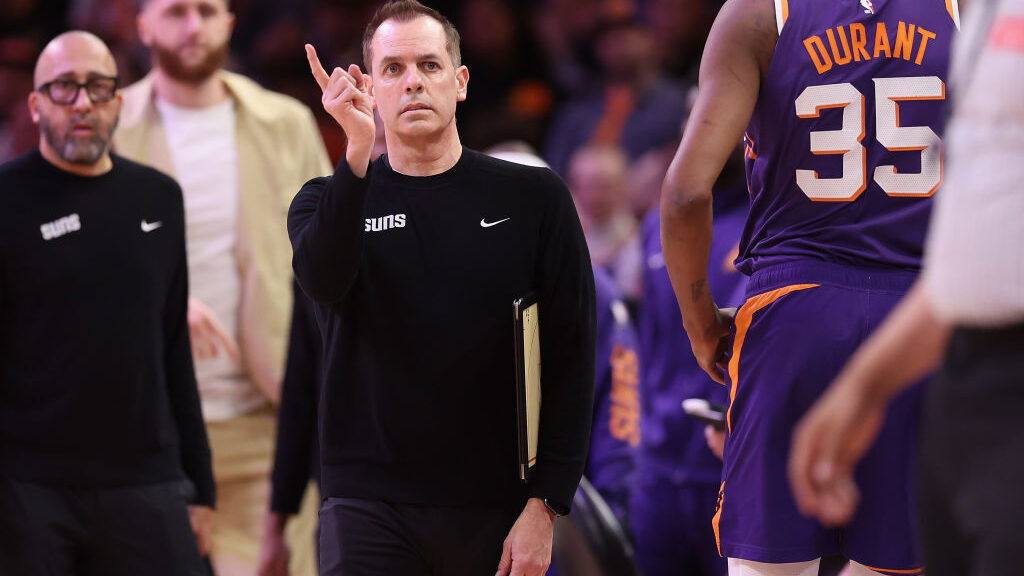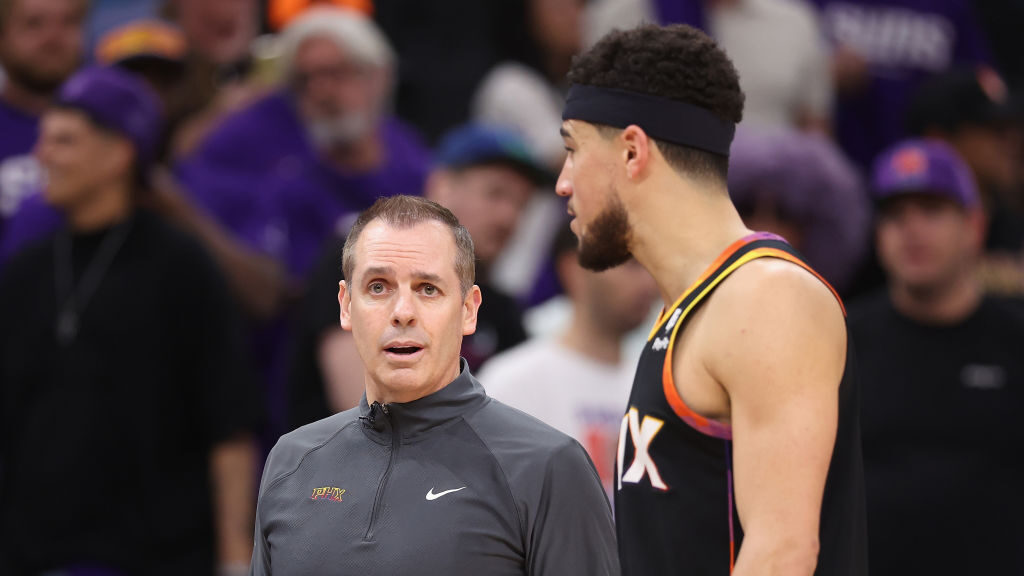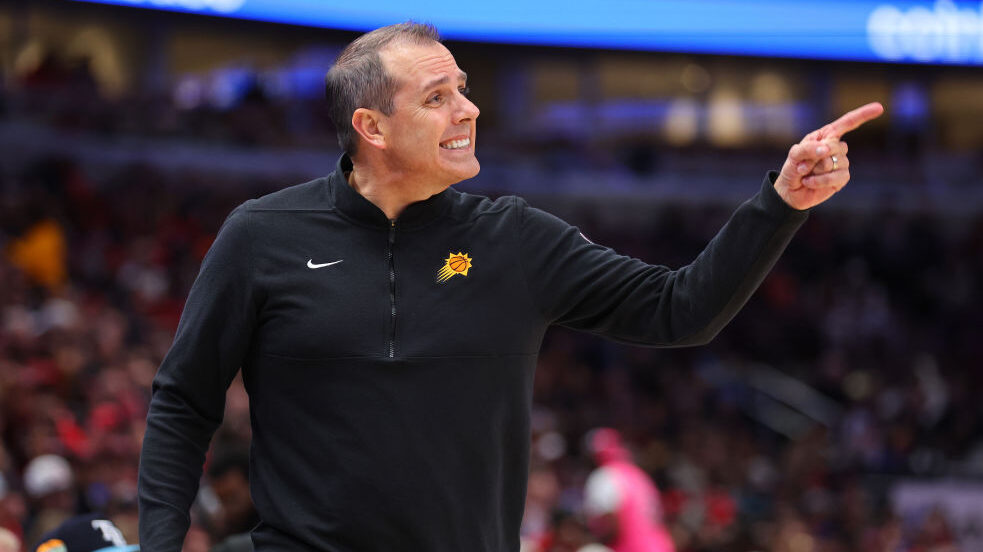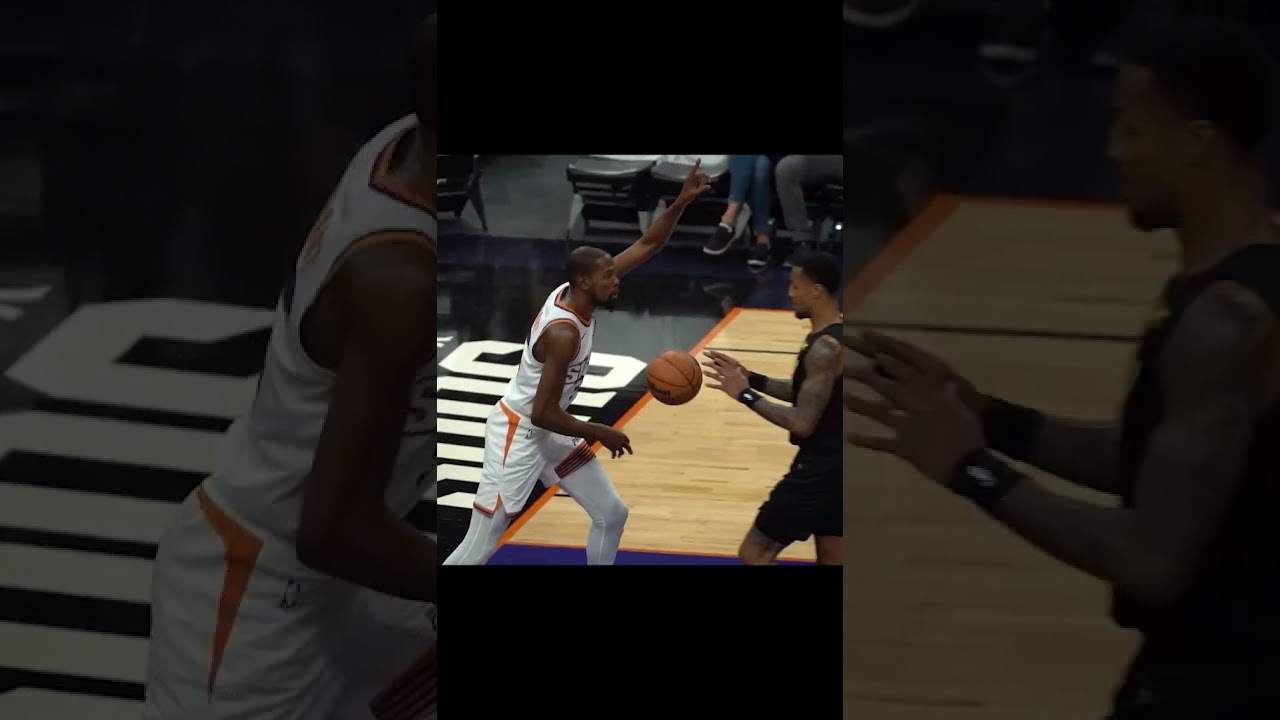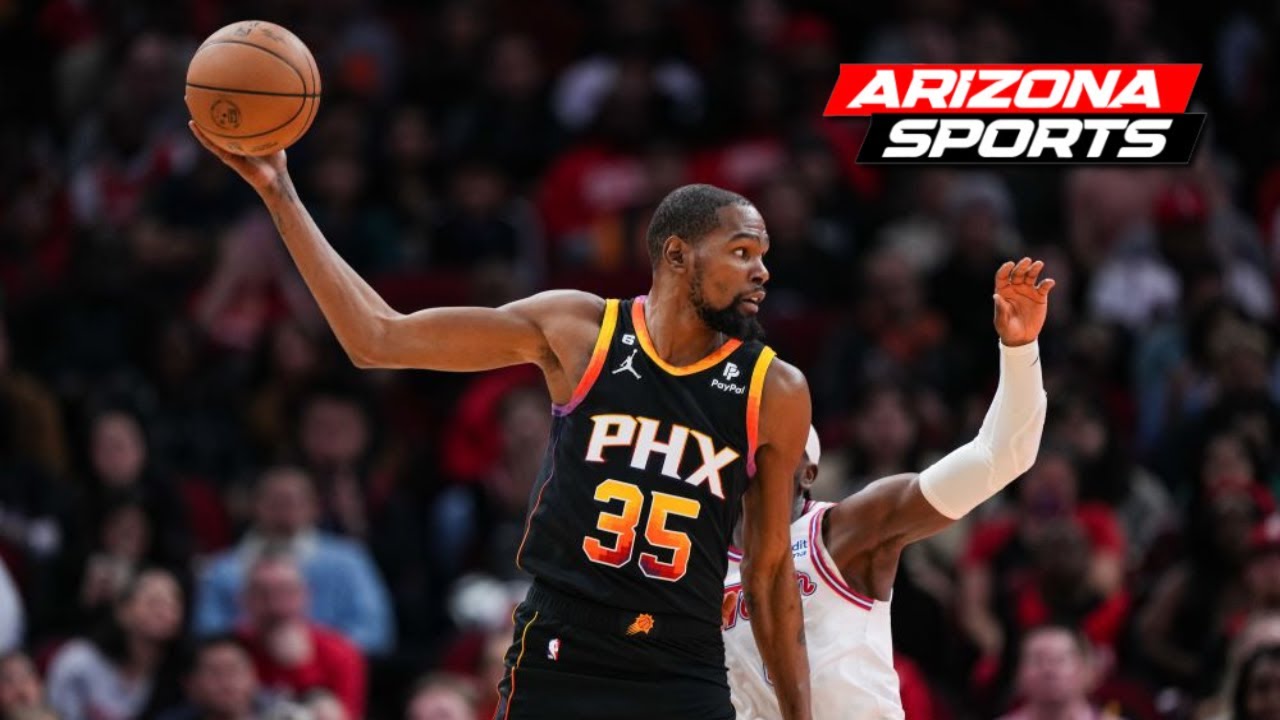Phoenix Suns TV deal with Gray Television, away from Bally Sports now official
Jul 14, 2023, 11:35 AM | Updated: 12:16 pm
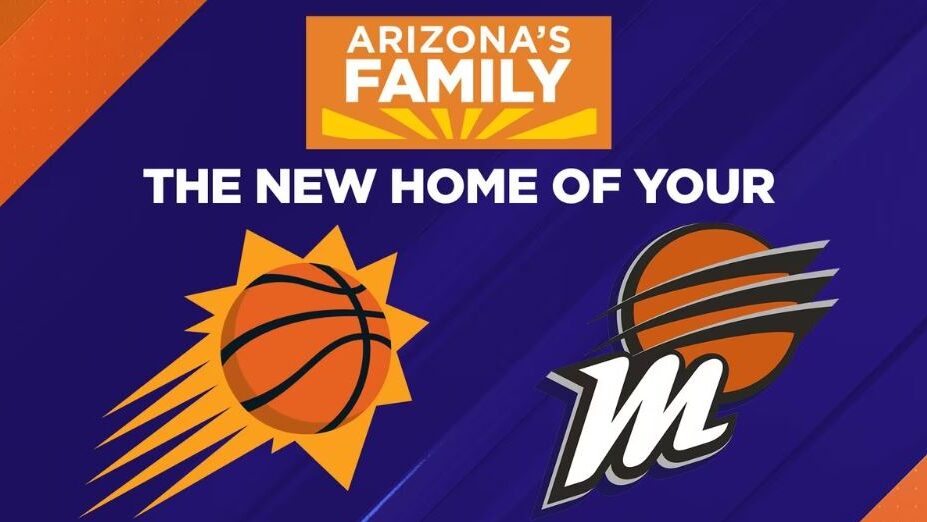
The Phoenix Suns announced a new TV deal with Arizona's Family. (Graphic via Arizona's Family)
(Graphic via Arizona's Family)
The Phoenix Suns and Phoenix Mercury announced they agreed to a new television contract with Gray Television on Friday by resolving a contract dispute with their former partners at Bally Sports Arizona, who agreed not to match the deal.
Arizona’s Family (channel 3) and the new Arizona’s Family Sports Network (channel 44) will carry all non-national exclusive Suns and Mercury games on the airwaves for free in the Phoenix area, according to a press release. The team will announce details of streaming options in the coming months.
“I am excited to be able to deliver to our Suns and Mercury fans this industry-shifting partnership with Gray Television,” Suns owner Mat Ishbia said in a statement. “We’ve had an incredible offseason, making a lot of exciting moves to build the championship-caliber Suns team our fans want.
“I am proud that we are at the forefront of this shift to make the game more accessible, which not only serves our fan base but also helps to build future NBA and WNBA fans.”
On May 10, a judge in the Texas Southern Bankruptcy Court ruled in favor of Diamond Sports, the owner of Bally Sports Arizona, which said that the new media deal announced by the Suns with Gray Television and Kiswe, a streaming company, was void for the time being.
Diamond Sports sued the Suns and Mercury, plus the two media partners, on May 3 after the teams announced the move. The Mercury’s portion of the deal was not included in the judge’s decision.
What is the new Phoenix Suns TV deal?
Gray Television includes KTVK (Arizona’s Family 3TV), KPHO (Arizona’s Family CBS5) and the statewide KPHE (Arizona’s Family Sports Network), which will help the teams reach the Phoenix, Tucson and Yuma media markets.
With the new deal, the franchises expect to reach 2.8 million households, tripling the current availability by being available on traditional over-the-air TV as well as streaming.
The jump away from local regional sports networks (RSN) could be a growing trend, as the Utah Jazz announced a similar move in the past month.
Diamond Sports remains in bankruptcy, and under Chapter 11, the company has frozen assets, allowing it to refinance and reorganize. The broadcasting rights contract with the Suns and Mercury for this season included a right of refusal that allowed the company to match any new deal signed by the teams if the rights are for less money. That is where the teams’ announcement of a new deal hit a roadblock.
What was the Suns’ TV contract hurdle about?
According to The Athletic, the bankruptcy court judge overseeing the case, Christopher Lopez, said in May that the Suns and Mercury failed to respond to Diamond Sports’ letters stating interest in matching a new deal.
Instead, the Suns and Mercury made a public announcement about a new media deal at the end of April, touting the ability to reach potentially three times the households.
In court, the Suns and Gray argued their deal was conditional on reaching a resolution on the right of first refusal. But Lopez noted that such language was not included in the first communications the Suns sent to Diamond on April 19, and only after Diamond protested in a series of letters did the basketball team add a line to the April 28 press release announcing the media deal that the arrangement was conditioned on the incumbent regional sports channel’s approval.
“There’s no real response to (Diamond’s) April 25 or April 27 letters, instead the Suns go on an all-out media blitz about the new agreement lauding its benefits,” he said.
Diamond’s lawyer, Brian Hermann of Paul, Weiss, using the term “insidious,” argued essentially the Suns tried to slip one by Diamond with the April 19 notification of the media agreement because the correspondence did not include a concession that Bally Sports (Arizona) had a right of first refusal. It had five days from notification to execute its right of first refusal rights. It was a line of argument Judge Lopez agreed with.
“Nobody is surprised by this lawsuit and it will not stop the Phoenix Suns and Mercury from making our games available to as many people as we possibly can,” Suns owner Mat Ishbia said in a May 3 statement responding to the lawsuit.


